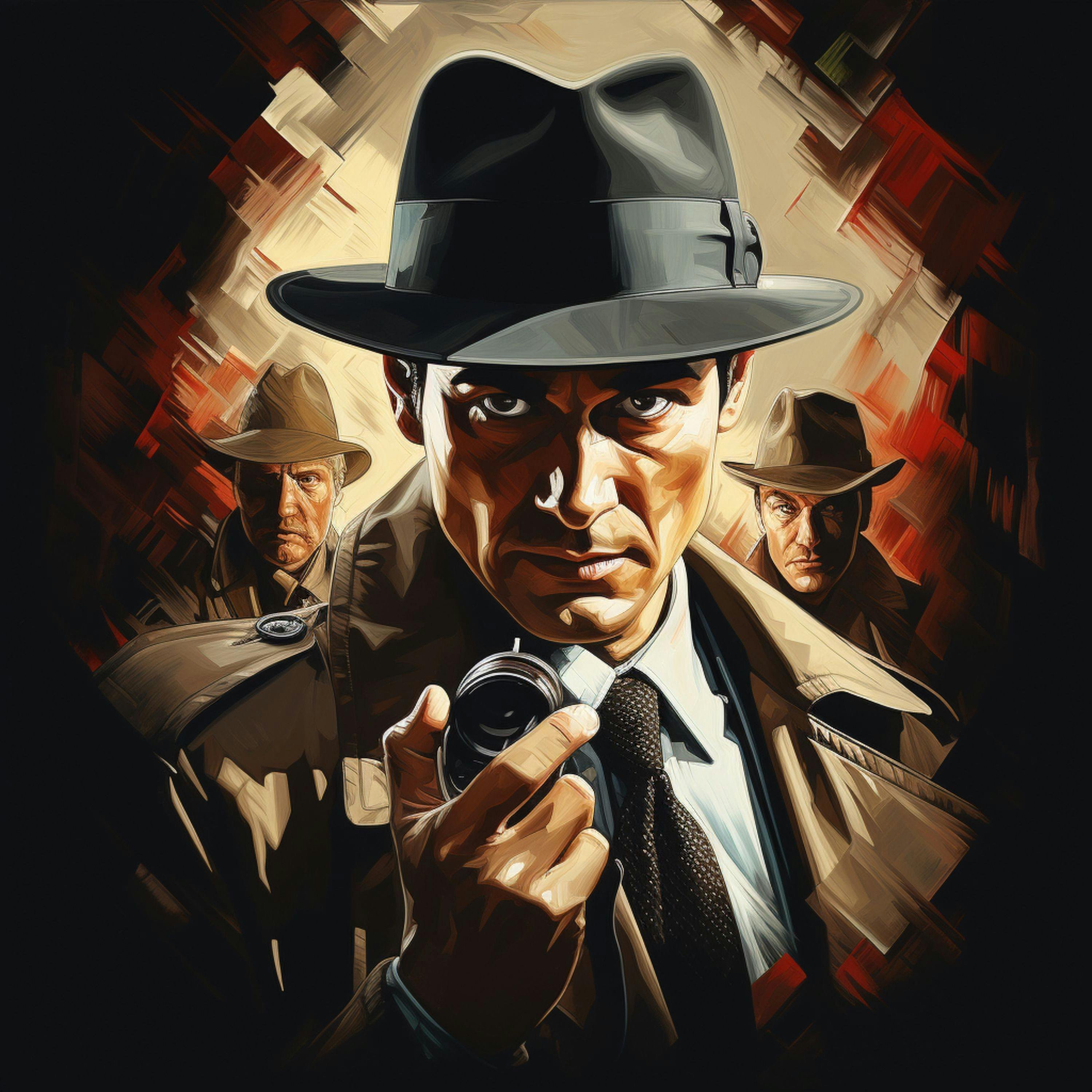Dead Man by James M. Cain
Description
Guest Narrator: Michael Rutland, Austin, Tx.
James M. Cain (1892-1977) was an American novelist, journalist, and screenwriter best known for his hardboiled crime fiction. Born in Annapolis, Maryland, Cain began his career as a journalist, working for The Baltimore Sun and The New Yorker. His experiences as a reporter heavily influenced his writing style, which was characterized by its directness, realism, and unflinching exploration of human nature's darker aspects. Cain's life was marked by personal struggles and failed marriages, which often found their way into his fiction, adding depth and authenticity to his characters and their predicaments.
Cain is considered one of the founding fathers of both the noir and hardboiled crime fiction genres. His novels, such as "The Postman Always Rings Twice" (1934) and "Double Indemnity" (1943), helped define these genres with their gritty, realistic portrayals of crime, passion, and betrayal. Cain's writing style, which favored sharp, concise prose and dialogue, set the standard for future generations of crime writers. His work also found success in Hollywood, with several of his novels being adapted into classic films noir, including "Double Indemnity" (1944) and "The Postman Always Rings Twice" (1946), further cementing his legacy in the genre.
While often used interchangeably, noir and hardboiled fiction have distinct characteristics. Hardboiled fiction typically features a tough, cynical protagonist, often a private detective or a criminal, navigating a corrupt and violent world. The emphasis is on action, dialogue, and the protagonist's struggle against external forces. In contrast, noir fiction delves deeper into the psychological depths of its characters, exploring themes of moral ambiguity, existentialism, and the inescapable consequences of one's actions. Cain's work often blurred the lines between these two genres, combining the gritty realism of hardboiled fiction with the psychological complexity and fatalism of noir.
Dead Man
In the powerful short story "Dead Man," James M. Cain showcases his mastery of the noir genre. The story follows a desperate man who accidentally kills a railroad detective and is subsequently consumed by guilt and paranoia. As the protagonist attempts to establish an alibi and evade capture, he finds himself engaged in a psychological battle with his own conscience, which proves to be just as relentless as the authorities pursuing him. Cain's signature style is on full display in "Dead Man," with its taut, economical prose, vivid characterization, and uncompromising exploration of guilt and desperation. The story serves as a testament to Cain's ability to craft complex, emotionally charged narratives within the confines of the short story format.
The figure of the rail-riding hobo has long been a staple of American fiction, representing a sense of freedom, adventure, and escape from the constraints of society. In the late 19th and early 20th centuries, as the United States underwent rapid industrialization and urbanization, many writers turned to the hobo as a symbol of resistance against the dehumanizing effects of modern life. Authors such as Jack London, John Dos Passos, and Jack Kerouac celebrated the hobo's unconventional lifestyle and spirit of rebellion. In "Dead Man," James M. Cain offers a darker take on this iconic figure, depicting the protagonist's life as a rail-riding hobo as a desperate, precarious existence. By placing his character in this context, Cain not only taps into a rich literary tradition but also subverts it, exposing the harsh realities and psychological toll of life on the margins of society.
James M. Cain's paternal grandfather, P. W. Cain, worked as a superintendent for the Hartford Railroad. This connection to the railway industry likely influenced James M. Cain's writing, giving him at least an interest in the railroads and those who lived on and around them.
Learn more about your ad choices. Visit megaphone
More Episodes
In the hushed halls of the British Library Reading Room, a sanctuary of knowledge hides a chilling secret. When an elderly professor is found murdered amidst at his desk, the scholarly calm of the Reading Room is shattered.
Enter Mrs. Craggs, a humble charwoman with a sharp eye and a knack for...
Published 11/23/24
Published 11/23/24
Is patriotism worth the cost?
In the volatile landscape of 1980s Britain, this question haunts every counter-terrorism operative.
Michael Gilbert's "The Killing of Michael Finnegan" draws you into a high-stakes game where loyalty is fleeting and deception is currency.
As seasoned agents Calder...
Published 11/16/24


